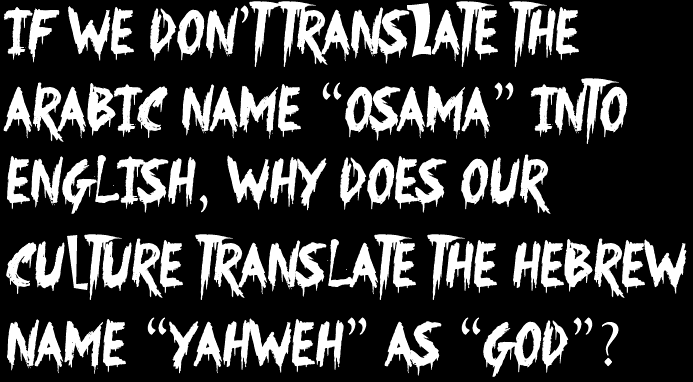-
Ponder Scripture Newsletter
-
-

-
ith
the
seemingly endless array of Bible-based articles, newsletters and
other publications currently available on the Internet, there is a
veritable "information overload" of sorts when it comes to searching
for various Bible-related topics. Since there is already an
abundance of Bible-related topics to choose from, you can well
imagine that one could devote his or her full time to reading these
studies. June and I have added our share of studies to
cyberspace, some of which are very lengthy. Indeed, some
topics require lengthy explanations to provide in-depth answers.
On this page, however, we want to keep things as "short and sweet"
as possible. While we primarily gear our writings to those who
share our understanding that the Torah is relevant for believers
today, anyone is welcome to read and offer feedback; however, due to
our schedules, we cannot guarantee a quick turn-around response
time. We invite you to direct all correspondence to seekutruth
at aol dot com.
Archived Newsletters
Newsletter #11: Should
We Translate Names?
IMPORTANT NAMES
By Larry &
June Acheson, with contributor Kathy Stewart
11/09/2013
ne of the great mysteries in life, to
me at least, is how we can live in a world that, for the most part, does
not call upon the Creator by the name He gave to Himself. While June
and I are persuaded that the name our Heavenly Father gives to Himself
is Yahweh, there are others who refer to Him as “Yahwah,” “Yahuwah,” “Yehovah,”
etc. Such a controversy wouldn’t exist if the “Ineffable Name Doctrine”
had not been perpetrated. The “Ineffable Name Doctrine” is promoted by
Judaism and holds that the Almighty’s name is “too sacred to
pronounce.” It is not a Scriptural doctrine, especially when one
considers the fact that the name Yahweh (יהוה) is used some 6,823 times in what
is known as the Old Testament. It only makes sense that those who love
the Almighty and seek to have a relationship with Him would also want to
know and use His name in a reverent way. Nevertheless, this is not what
is being promoted by today’s churches and assemblies. Instead of
teaching that the name “God” was rendered “demon” by the Hebrew scholars
who translated the Septuagint text of Isaiah 65:11 in the 3rd
century BCE, today’s churches would have their members believe that the
Creator’s actual name is “God.” I know because that’s what I was taught
by my parents, who in turn had the blessing of the Methodist Church to
do so. It is true that some of the more learned laity do know that
“God,” as used in most Bibles, is actually used to translate a title
(“Elohim”), yet even these more learned churchgoers have no problem
whatsoever if you use “God” as a proper noun in reference to the Creator
of the Universe.
From my own experience, I have
often asked people, “Can you think of a better name to call on than the
name the Creator gave to Himself?” I have never had anyone come up with
a better name, nor has anyone even tried. Yet, those same people, upon
learning that the name He gave to Himself is “Yahweh,” then proceed to
continue referring to Him as “God.” Call it a case of “old habits dying
hard” or to borrow the expression used by Winston Churchill, “Men
occasionally stumble over the truth, but most of them pick themselves up and hurry
off as if nothing had happened.”
Of course, there are always
exceptions to the rule. like our friend, Kathy. When we first met
Kathy, she referred to the Almighty as “God.” One thing led to another,
and we shared with her our reasons for referring to Him as “Yahweh.”
Kathy is one of those rare types who was not only able to follow our
line of reasoning, but she performed her own research into the matter
and reached the same conclusion that we arrived at many years ago – that
referring to Yahweh as “God” dishonors Him. Moreover, within a very
short span of time (a few weeks), Kathy had all but removed the name
(and title) “God” from her vocabulary.

People Understand that Names Are Not
Translated
As a general rule, our
culture understands that names are not translated. For example, no one
attempts to translate the name of the Taliban terrorist, Osama bin
Laden, into another language. Rather, it is transliterated,
which means the pronunciation is retained from one language to another,
even if different characters are used to convey the correct
pronunciation. My own name is an example of this. Back in 1990, I
spent a month of study in Spain. While I was there, I made several
friends, and they all made earnest efforts to know and properly vocalize
my name. The first thing I did was write out the spelling of my name as
follows: “L – a – r – r – y.” Those who understand Spanish phonetics
will immediately recognize that a Spanish-speaker who has never seen
that name before would pronounce it “Lah’ rrree.” While I had no
problem with their slight mispronunciation, I nevertheless repeated my
name back to them with the long vowel “a” in the first syllable. They
repeated it back to me with ““Lah’ rrree” again. I then decided to try
something different. I spelled my name as “L – e – r – i.” To my
amazement, they immediately began pronouncing it with near-100%
accuracy! This is an example of a transliterated name. The only way
they could pronounce my name accurately was by spelling it in a
different way.
Please observe that my Spanish
friends made no attempts to “translate” my name! No one said anything
like, “Oh, yes! The English name ‘Larry’ is translated ‘Lorenzo’
in our language.” Nor does anyone ever say, “‘Osama’ is translated as
‘Oscar’ in English! Rather, they transliterate his name with an
English spelling that best reflects the original Arabic pronunciation.
Now let’s think a moment about
the original Hebrew pronunciation of our Heavenly Father’s name.
According to ancient Greeks, who overheard Hebrew-speaking Samaritans
speaking the name, it was pronounced “Yahweh.” The way they
transliterated it into Greek was “IAUE,” which, in English, is
pronounced “Yahweh.” If English-speaking people don’t make any attempt
to “translate” or otherwise change the pronunciation of Osama bin
Laden’s name, then why would they consider doing such a thing to the
name of the Creator of the universe? Yet, that is exactly what most of
this world’s believers do.
Our friend Kathy readily
understood the above “double standard” and began referring to our
Creator as “Yahweh.” However, Kathy soon experienced the same roadblock
that June and I have encountered so many times: People just don’t “get
it.” She told us about having tried in vain to persuade her mother of
the truth that names should be transliterated, not translated. Her
mother insisted that names are translated from one language to
another. One day, during a conversation with Kathy, I told her about
the famous Italian composer named Giuseppe Verdi. If one were to
translate his name into English, it would be “Joseph Green.” Yet no one
does this. He remains known as Giuseppe Verdi, even in the United
States of America.
Kathy recently decided to share
this example with her mother, and the result was simply unbelievable!
Kathy’s mother, during that exchange, was compelled to admit to Kathy
that “important names you do not have to translate.” I asked Kathy to
compose the details of the conversation that she had with her mother,
and here is what she wrote:
I
was having dinner with my mom last Tuesday (11/05/2013), when I felt
compelled to ask her a question. The
same question was asked of me a couple of weeks ago, at the Feast of
Tabernacles, by Larry.
Following is my conversation with Mom:
Kathy: “Mom do you know who Giuseppe Verdi was?”
Mom: “Oh, YES! He is one of my favorite composers!”
Kathy: “Was he French or Italian?”
Mom: “Italian. Most of the great composers were Italian.”
Kathy: “Well, what is his name in English?”
Mom
paused, so I continued:
Kathy: “Wouldn’t his name be Joseph Green?”
Mom: “Well, yes, that would be correct.”
Kathy: “But we don’t call him that.”
Mom: “Well, important names you don’t have to translate.”
Kathy: “No names are supposed to be translated.”
Mom: “Where did you get that idea?”
Kathy: “From Larry.”
Mom: “Oh, Larry!”
Kathy: “Well, it’s true.”
Unfortunately, I missed an important opportunity to ask her if our
Heavenly Father’s name was important enough not to need translating.
While Kathy may have missed an opportunity to share that our
Heavenly Father’s name is far more important than Giuseppe Verdi’s name
will ever be, her experience is nevertheless one that we can all learn
and grow from because missed opportunities are often capitalized on in
future experiences. Who knows? Maybe you, who are reading this, had
never really given much consideration to the name that our culture as a
whole uses in reference to our Creator, but now you are able to
see that our reasoning is not some “passing fancy” or whim, but rather a
heartfelt desire to have a relationship with our Heavenly Father – a
relationship founded on more than just knowing Him by His character, His
infinite mercy and lovingkindness, but also by knowing Him by His name.
__________________________________________________
Back to Ponder
Scripture Newsletter Archives
















